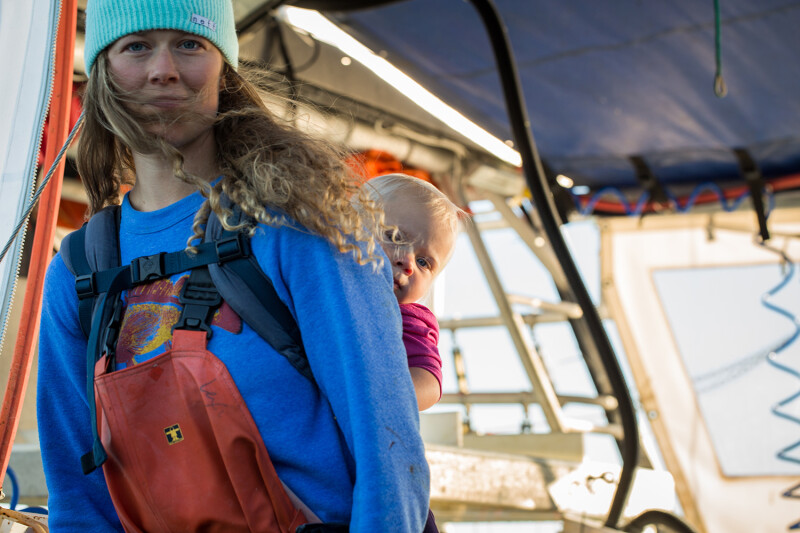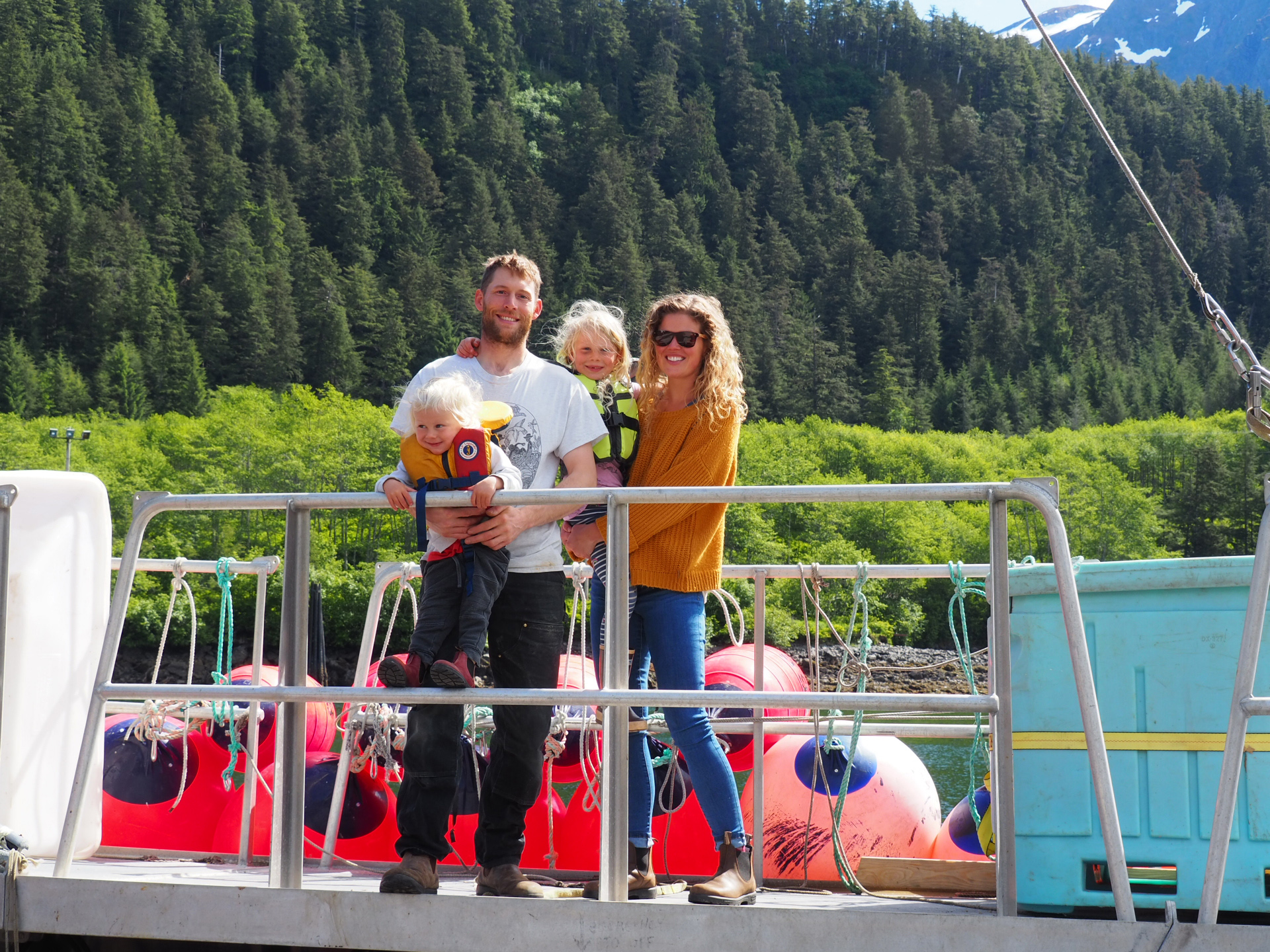How is fishing a part of your life?
The seasonality created by fishing relates every day to the life I live with my husband, Adam, and our two little kids. Our life is a mix of land and sea, with lots of family time. Our daily routine in Sitka, Alaska, is connected to the seasons of harvest, the winds and tides.
In the winter, our family is together on land, enjoying a quiet season. In spring, Adam longlines full time on my parents’ operation, F/V Kariel, while the kids and I are in town. We switch gears in the summer to freezer troll on our boat, F/V Myriad. The kids and I jump aboard periodically, enjoying life and work on the water with Adam and our crew. In the fall, we longline with our extended family. This family crew varies, but includes my parents, Adam and me, our kids, my brother and sister, my uncle, etc. This is the season for boat school!
Amidst the fishing seasons, I direct market our catch (king salmon, coho salmon, sablefish, rockfish, ling cod) to restaurants and households around the Pacific Northwest. We began this venture by selling to restaurants desiring a high quality, single-boat source of wild fish.
A couple of years ago, we began retailing our catch by the 10-pound box, so now we have a small-scale option available for households. It is really fun and gratifying to have a direct connection to so many customers who love wild fish as much as we do.
What made you decide to get into direct marketing?
We consider our catch — frozen at sea, troll caught, ocean run salmon — to be very special. Freezer trolling is a labor of love, and we want to see our product reach people who appreciate it for its full worth. One of our business goals is to be an employer of choice; maximizing fish value and crew shares are important elements of this.
We know who is cooking up our fish, and our customers know who caught it. This direct connection motivates us even when fishing is slow, and inspires us to process each fish with respect and care — it makes the whole job more fun and meaningful.
What has been easier or more challenging than you anticipated?
I’d say the most challenging aspect of this business has been marketing, which I really had to dive into once I started retailing to households. It was helpful to have the foundation of working with chefs and restaurants, because I knew the type of customer I was looking to find, and I was used to telling the story of our fish. The difficult (and rewarding) part of marketing is simply finding the customers who we connect with via our shared values. It’s a big world out there, and can be difficult to niche down.
Has the pandemic played a part in that?
With the pandemic, we have experienced more uncertainty with our restaurant customers, because of closures or reduced demand. The pandemic has required every business to practice patience and flexibility, and we are no exception. We started retailing fish boxes to households in 2019, which was really lucky timing. That aspect of our business has seen a notable increase because so many people are cooking at home and stocking up their pantries.
How has your fishing background influenced you as a registered dietitian?
Growing up an Alaskan kid and being connected to the wild food sources around me has served me well as a nutrition professional. I got into nutrition because I love food and cooking, which were a big part of my life growing up in a fishing family. I live in a region originally inhabited by Tlingit people; harvesting wild food has been a tradition and way of life here since time immemorial. I consider it a privilege to live here and to be connected to the wild food around me.
I believe a deeper connection to food is healing in many ways. This connection shows up differently for every individual — your sense of place, harvesting or growing your own food, or cultural and family traditions around food. I try to bring this awareness into working with clients for nutrition therapy and overall wellbeing. There is a reason local food, slow food, and knowing your fishermen or farmers has become so popular. We humans naturally seek a connection to the food that sustains us.
What do customers say, what are their questions and feedback?
There are two common themes: Customers love the quality of our fish, and they enjoy being able to connect with us directly. They really appreciate knowing the story behind the fish they are cooking up to share with their loved ones.
What advice do you have for other fishermen thinking about direct marketing?
I recommend researching the potential customer or market you want to attract. What characteristics do your ideal customers have, and what values do you share with them? Don’t be afraid to put yourself out there. What do you have to lose?







